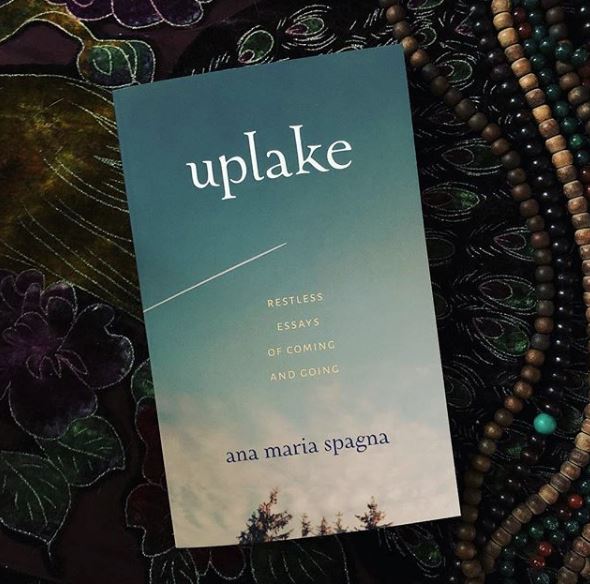|
Maybe we need to sit on the floor and cry, eat a bowl of hopeless ice cream or cereal, escape into a movie or a run. Maybe we need to devolve into panic and fear, for an hour or a day. There may be one particular issue, or a hundred, that hits you like a wallop to the gut. Me too. And #metoo. In a very real way, at the most basic level, this administration's corruption threatens actual mortal lives. We feel hopeless and scared for ourselves, our children, our loved ones, our community, and, (for many of us who know that there but for fortune any issue that doesn't impact directly could) our fellow strangers. BUT -- This is what we get in exchange for growing up, for getting to choose what to put on our plates, when to go to bed, what to do with our extra cash, what to do with our time. We get to drive and work and purchase goods from companies of our choosing, set bedtimes for others, choose our own reading material, watch NC-17 movies, and vote once or a few times a year. WE ARE THE ADULTS. When robbers bang on the door, do we throw up our cynical adult hands, pessimistically rationalize that because the neighborhood is threatened we should simply stand by as thieves raid the house, loot the china cabinet, dig through the sock drawer for the Ajax container of stashed away cash? No, because WE ARE THE ADULTS HERE. So go on, feel sorry for yourself and for the muddled shitshow. Have a good cry on the living room floor. THEN: tuck the child-self in bed. We need to use our voices, our pens, our ballots, our signs, our letters, our town halls, our ACLU and EMILY's List, the local and national Democratic party (because like it or not, that's the party that's fighting against this gaslit-led erosion of human rights) -- and SHOW UP. If the purpose of voting for a third-party candidate or for Trump was to disrupt the establishment, well done. It worked. Maybe the establishment needed to be disrupted so that we would collectively grow up. Children -- my children, your children, our communities' children -- and others who are most vulnerable -- depend on US (as in We the People, not the USA). Maybe when the kids go to bed we have our own little pity parties and a stiff drink. But I hope you got a good night's sleep, because it's morning, and it's time to wake up, get over the cynicism and any other excuse to be lazy. If you're doing nothing but crying on FB and dousing activists' passion, you're part of the problem. Sign up for Resistbot, show up to a protest, take an hour to understand the ballot issues, and know that it takes all of us doing any little thing, a little every day, to get things back on track. Some Action Steps
0 Comments
Review excerpt: In my twenties, I spent summers in a Thoreau-like lakeside cabin in the woods, not far from Walden Pond. Even now, when it rains here in Los Angeles, and especially at night, even happily married as I am, I imagine I’m there in my cabin bed listening to the patter-ping of raindrops on Long Pond. I’d fall asleep to that music, or to the pulse of crickets and critters scampering along the mulchy path, and wake in the strange quiet before sunrise to mix bread dough for the retreaters who stayed in their own cabins down other paths. One summer there on the pond, a city friend accused me of having fallen in love. I had: with the pine-needled forest, the moonlight that draped like fabric to the sandy pond floor, the sunrise through the kitchen windows, the rain, and my cabin. Even so, every winter I returned to the city. And one summer, regretfully, inevitably, like Wendy grown up, I stopped returning to the woods. Ana Maria Spagna immigrated in the opposite direction, from the urban sprawl of her southern California childhood to the Pacific Northwest woods. Her descriptions of her adopted home in Stehekin conjure feelings of sparseness, far-off neighbors, evergreen-scented air, crackling autumn leaves, whispers of snow. Though Long Pond is on the other coast and I’ve never been to Washington, Spagna’s accounts of Stehekin in her newest book, Uplake: Restless Essays of Coming and Going, echo of my old home, the one I pine for when it rains or in the noise of daily living. However, if my memory of Long Pond has blurred into a sepia-toned former romance, Spagna knows her Stehekin like a time-tested marriage. Under her frank pen, the paradisaical forest is denied neither its beauty nor the choke-hold of fire season, racket of chainsaws, and slide of valley walls that are washing away in changing-climate floods. She fell in love with a place that is “pristine, spectacular, majestic, maybe even sublime,” but tied the knot with all its off-the-beaten-path pleasures and pains. Read the rest of the review here. |
Archives
May 2019
Categories
All
|
